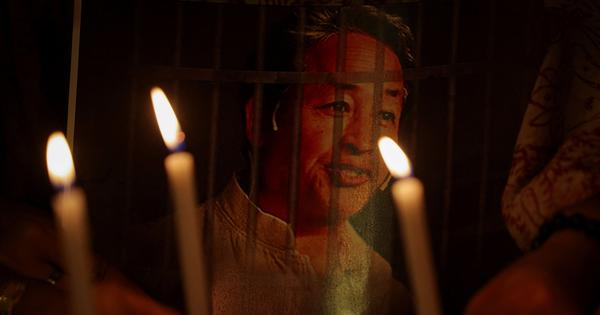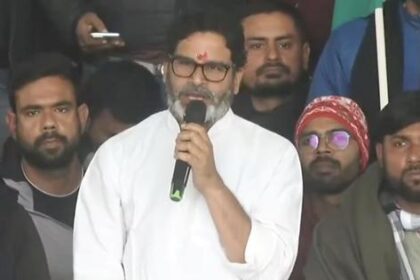Government actions against Sonam Wangchuk highlight rising tensions and unfulfilled promises in Ladakh.
Ladakh, known for its serene landscapes and cultural richness, is currently facing a significant crisis. The central government, led by the Bharatiya Janata Party (BJP), has been criticized for failing to fulfill key promises made to the region since its transition to a Union territory in 2019, when it was separated from Jammu and Kashmir. Amidst growing unrest, the government appears to be deflecting blame onto prominent figures like Sonam Wangchuk, an educationist and climate activist who has become a leading voice advocating for constitutional safeguards for Ladakh.
Wangchuk has been at the forefront of a movement demanding protections under the Sixth Schedule of the Indian Constitution, which allows for a degree of self-governance in regions with a Scheduled Tribe majority. The BJP had previously assured the people of Ladakh that such measures would be implemented. However, as unemployment rates among the region’s youth continue to climb, these promises remain unfulfilled.
On September 10, Wangchuk and several others began a hunger strike to draw attention to their demands. Yet, as protests escalated, violence erupted on September 24, leading to fatalities, including that of a former serviceman. In the aftermath, the government sought to discredit the protestors, particularly targeting Wangchuk by labeling him as “anti-national.” This narrative gained traction as Wangchuk was detained under the National Security Act on September 27, coinciding with the withdrawal of permissions for his educational initiative, the Students’ Educational and Cultural Movement of Ladakh (SECMOL), to receive overseas contributions.
The justification provided for Wangchuk’s detention was that he had allegedly engaged in activities detrimental to the security of the state. A statement from the Ladakh administration indicated that despite the government’s offer of dialogue through a high-powered committee, Wangchuk persisted in his hunger strike, which they claimed had ulterior motives. The administration also linked the violence during the protests to Wangchuk’s speeches and his references to historical movements like the Arab Spring, suggesting that his rhetoric incited unrest.
However, the reasoning behind these allegations appears tenuous. Critics have pointed out that if Wangchuk had consistently posed a threat, action against him should have been taken sooner. Context surrounding his comments about the Arab Spring indicated that he was advocating for peaceful agitation rather than incitement to violence. Following the outbreak of violence, Wangchuk expressed his disappointment and called off his fast, distancing himself from the actions of those who turned to violence.
In a press conference, the Director General of Police for Ladakh further escalated the narrative by implying foreign connections to the protests, noting Wangchuk’s prior visit to Pakistan for a climate conference. This visit, which included praise for government initiatives, was framed in a way that suggested suspicion. Such statements have been amplified by certain media outlets, which have failed to provide a balanced view of the events.
The rationale for SECMOL’s funding restrictions under the Foreign Contributions Registration Act also raises questions. The educational institution had received a grant aimed at addressing issues like climate change and food security, yet authorities have reinterpreted these initiatives as violations of national sovereignty. Critics argue that actions taken against Wangchuk and his institutions seem to be an attempt to undermine his credibility at a time when he is advocating for critical changes in Ladakh.
As tensions in the region continue to rise, the actions against Sonam Wangchuk highlight the complex interplay between governance, activism, and the urgent needs of the people of Ladakh. Wangchuk’s longstanding commitment to his cause, recognized both nationally and internationally, stands in stark contrast to the government’s approach, raising important questions about the future of the region.








